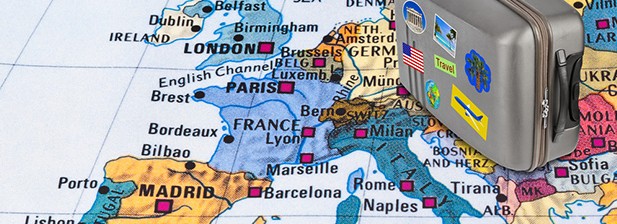At which point are we: some good news.
In some of my thoughts published here in early April, I urged the need for creative proposals to hypothesise scenarios other than the closings and cancellations of seasons and festivals that affected the whole world, imagining how to keep Music and work ‘alive’. Sharing the same urgency, many have rolled up their sleeves and some comforting news – which, however, seem to attract less than the discouraging ones – begins to arrive.
From Italy, in particular, one of the countries most affected by the emergency (but also by toxic political controversy): how not to appreciate the initiatives of institutions, festivals, associations, individual artists who do not cease to bring to the attention of the authorities the state in which theatres, employees and self-employed, through planning of alternative solutions to allow the production of live performance thanks to the experimentation of new forms.
That smart-performing (in situ) also could be translated into the great opportunity to rediscover a vast repertoire so far less frequented: from the Recital (vocal, instrumental and for ensembles) to the Opera buffa (less hugs and more intrigues) or Baroque opera-seria (absence of assiemi) but also, as we said, for wide-ranging shows, through the use of the parterres for the involvement of orchestras, choirs and dancers always in compliance with the necessary caution and safety rules for performers as well as for any audience present.
It can be done, ensuring the necessary professionalism and live show.
Sharing via streaming: this tool, to be considered an ally (not an opponent), remains, at the moment and although it is not everyone taste, the one most widely used by lovers of art, music, opera, dance, theatre.
Arrived in these days the excellent news of the approval, after years of proceedings (and gone unnoticed) of the Beijing Treaty (WIPO) that protects intellectual rights – in practice, income for creators of contents – and that arrives right in the moment of greater fruition of the shows through the platforms available online.
An excellent signal that will help artists to improve their contracts from here on and which bodes well for the implementation of shows that can be watched online but upon payment of a ticket.
It is a topic that needs to be addressed: this emergency created the proliferation of performances, spontaneous at first, then questionable hunt for visibility, carrying at the same time, a risky misunderstanding that music is not considered as it should be, that is, a profession.
Not a hobby. Education must also be directed in this way to better explain that between the home-shows and the emblazoned premieres, there are entire categories of professionals, hundreds of thousands of musicians in each country who through their work contribute to the intellectual and economic well-being of the world.

What about Education?
Little is said about it, but the world of education is the most affected sector together with that of music production and it is experiencing a serious crisis due to the closure of schools and universities, which have been harshly exhausted, moreover, by makeshift methodologies, which have already become customary to allow the carrying out of courses.
The slogan launched by the Microsoft guys around the 80s comes to mind: “A computer on every desk and in every home.” Knowing how it turned out, it would be wonderful to be able to translate it into music, that is «A musical instrument in every home».
A thought also goes to that extraordinary project which is Erasmus and in which thousands of students and future professionals participate.
What is the lesson that we should learn from what is happening and what is the opportunity not to be missed?
I have asked these questions to Elisabetta Pasquini, Associate Professor, Department of Arts, University of Bologna and coordinator of the Degree Course in DAMS:
“In this difficult moment of emergency, university education has suffered a strong jolt, but it hasn’t stopped completely; Italian and many European universities – some more, some less, and in different ways – have equipped themselves to deliver at a distance, that is, via telematics, almost all the teaching that previously took place in attendance. At best, instead of in front of a class, made up of students with different backgrounds, the teachers gave their lessons in front of a webcam, without a real possibility of dialogue with their privileged interlocutors; in a few days, they found themselves experiencing – unwittingly – one of the possible variations of the much-dreamed ‘innovative teaching’, that is effective for everyone, reaching their students in their homes and via internet connection.
What we are experiencing now represents a challenge for the future, to the extent that we will inevitably have to reflect on how we will be able, in a landscape that is still uncertain, to guarantee everyone access to study; and how, when the situation finally turns to normal, it will be possible to use fruitfully the tools tested to favour the most disadvantaged students (workers, off-site, with learning disabilities, etc.). But if there is a lesson worth repeating in this circumstance, it is precisely this: in university education, and education tout court, the two-way relationship that is established between student and teacher is irreplaceable; and the enrichment that comes from face to face exchange, from sharing a human path even before learning, has no equal. The gratitude and emotional participation of the students, known in the classroom and accompanied in this bumpy training process, are an evident testimony.”

Europe’s Day: the Girl turns 70.
When in the early nineties I began to travel that mileage that is this profession, it was necessary to have always several currencies ready in our pockets in (obviously few) banknotes of Lire, Deutsche Marks, French Francs, Swiss Francs, Pesetas, Austrian Shillings (ATMs and credit cards represented more of a problem than a solution compared to today) and with the documents needed to enter and leave in and from individual countries in Europe.
Crossing the borders was not so simple as well as extremely expensive, sometimes even a mortification, but it is also true that faced with the difficulties to declare one’s profession as an Opera Singer (with contracts in hand to show) represented a sort of emotional and moral pass, which has sometimes compensated for the many inconveniences.
I also remember the arrival of the Euro currency: in 2001 I purchased the first kit of coins that was needed to familiarise yourself with that epochal change that was perceived as extraneous.
Yet it is undeniable that the life – and the profession – of an artist has only benefited from it (common currency, freedom of movement, co-productions between theatres, digitisation of entire libraries, tourism, etc.) and many others could be achieved if, from the crisis that we are living, the opportunity arose to continue that suspended community process.
I know, it is complex, but I have the feeling that those who would like a Europe à la carte in which to contest all possible evils are also those who do not traverse it and therefore do not live it.
And what, for example, if the voice of the musicians, never as loud as now, have to offer this great contribution for a lasting vision allowing the maturation of this ‘girl’ through a renewed legislation?
The election of Music as Public Good, at a European level, to begin with, could be at the same time that great step forward, as well as a lesson, constituting the safeguard for ALL workers, even us freelance, cut off in this circumstances, in case of emergency.
A discussion has started in recent days on the unification of the tax authorities at European level, ça va sans dire, a complicated proposal to implement, but in practice for us, travelling artists, it could finally be a relief. Few people know how much precious time reserved to study and work, fiscal paper collecting takes away: each country has its own rules and each of us (together with its accountant) is forced to learn, unwittingly, what it means to be our own company, literally going crazy to avoid mistakes and misunderstandings that can come at a high cost.
As always, some proposals that I address in particular to Ursula von der Leyen and David Sassoli:
- the suspension of VAT / IVA for the next two years from now on for self-employed left without work would be a great help;
- the creation of a Community VAT / IVA;
- the VAT / IVA exemption from one purchase (receipts) in the country where temporary contracts are performed which so far does not offer any possibility of a claim.
The review (even better the cancellation) of the obligation of this application would already be a way to streamline bureaucracy and return money to all those professionals that are not eligible into any category of aid.
Unfortunately, the majority of the artists-taxpayers who push to return to work are excluded from the majority of the measures in place for this emergency: to work is the only thing we can do and we know how to do to face the disastrous consequences in this time of serious crisis.
9 May 2020
© Anna Bonitatibus
